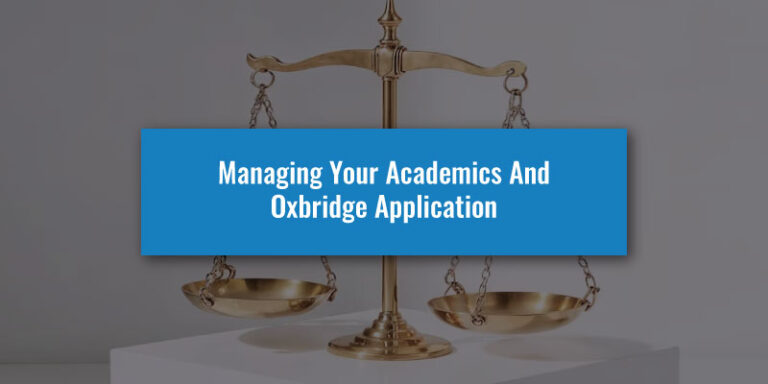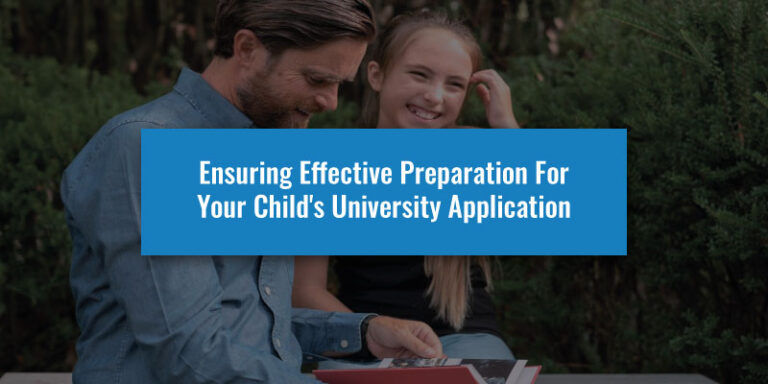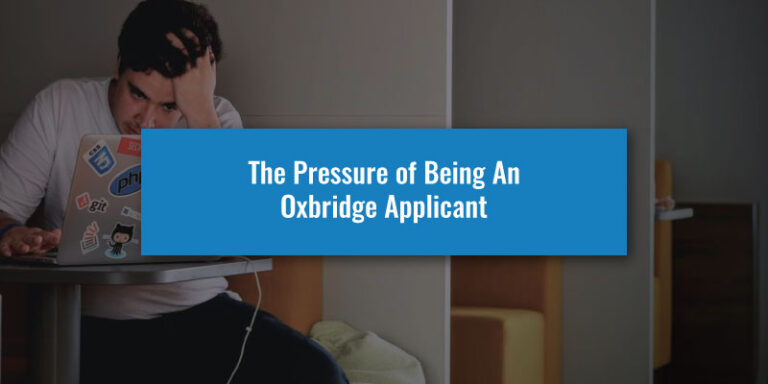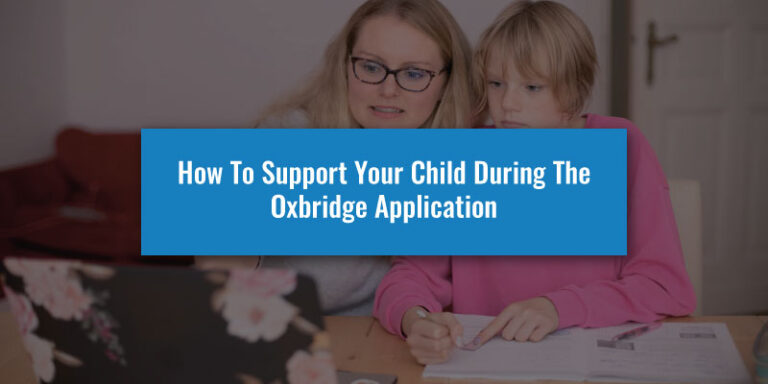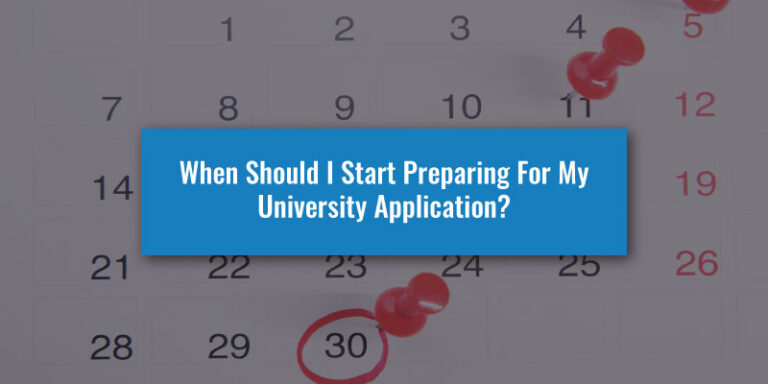When it comes to university admissions both nationally and internationally, the University of Oxford and the University of Cambridge – together known as Oxbridge – are two of the most notoriously difficult to be accepted into. The combination of their selective applicant standards, challenging application process and high application rates means that only a small percentage of those who apply for either university will actually be admitted.
So what does it take to get into Oxbridge? In this guide, we’ll explore how hard it is to get into each university, what steps you will need to complete to submit your application and tips for how you can maximise your chances of success. Let’s begin!
How Hard Is It To Get Into Oxford & Cambridge?
This is a question that is often asked by prospective Oxbridge applicants, and for good reason. With so many sources saying that Oxbridge is nearly impossible to get into, it can feel like it may not be worth wasting a choice on your UCAS application for a university you probably won’t get an offer for.
How true is this though? Thankfully, it’s actually very easy to quantify how difficult it is to get an offer at Oxbridge. All we have to do is look at the Acceptance Rates, or Success Rates as we like to call them:
How Hard Is It To Get Into Oxford?
2023
Applicants: 23,211
Offers: 3,721
Success Rate: 16.0%
2022
Applicants: 23,819
Offers: 3,645
Success Rate: 15.3%
2021
Applicants: 24,338
Offers: 3,555
Success Rate: 14.6%
2020
Applicants: 23,414
Offers: 3,932
Success Rate: 16.8%
2019
Applicants: 23,026
Offers: 3,895
Success Rate: 16.9%
How Hard Is It To Get Into Cambridge?
2023
Applicants: 21,445
Offers: 4,553
Success Rate: 21.2%
2022
Applicants: 22,470
Offers: 4,238
Success Rate: 18.9%
2021
Applicants: 22,795
Offers: 4,260
Success Rate: 18.7%
2020
Applicants: 20,426
Offers: 4,710
Success Rate: 23.1%
2019
Applicants: 19,359
Offers: 4,694
Success Rate: 24.2%
From this, we can see that acceptance rates are very low for Oxford and Cambridge. While getting into Cambridge is typically a bit easier, it’s rare to see the annual acceptance rate rise above 20% across each university. So this confirms that getting into Oxbridge is pretty hard. Colleges will also have unique acceptance rates at Oxford and Cambridge, so consider these when choosing a college.
However, there are multiple reasons why you shouldn’t immediately give up on your Oxbridge dreams:
The Oxbridge application isn’t completely luck-based; you’ll have plenty of opportunities to demonstrate your skills and your dedication to your subject. This will be important for helping your application stand out to the admissions tutors, so preparation is crucial.
Provided you’ve prepared your application properly, you’ll be at a great advantage compared to a large percentage of your competitors. Remember, there are typically 20,000 + applying to each university in a given year, and not all of them will be taking their application as seriously. Provided you’ve worked hard and have the skills to prove your worth, you’ll only be competing with a much smaller number of equally capable candidates.
Depending on the subject you’re applying for, the number of applicants you’ll be competing with may be far fewer than the more competitive subjects. For example, there are far fewer applicants each year for Classics when compared to Law or Economics. Plus, acceptance rates will vary greatly between courses, with some courses exceeding 40% of applicants accepted. All of these statistics are available to view on the university websites.


The Most Competitive Oxbridge Subjects
Some subjects are far more competitive than others due to their general popularity, rating or iconic association with either university. For example, Cambridge’s Natural Sciences course is highly competitive due to its position as one of the top science courses in the world, while Oxford’s PPE is similarly iconic due to its legacy in the industry and list of famous alumni.
Popularity and competitiveness are directly linked when it comes to Oxbridge courses, so here are some of the most competitive subjects taught:
Oxbridge Medicine Acceptance Rates
| Year Of Entry | Applicants | Offers | Success Rate | Applicants | Offers | Success Rate |
| 2023 | 1,712 | 162 | 9.5% | 1,754 | 288 | 16.4% |
| 2022 | 1,713 | 150 | 8.8% | 1,971 | 286 | 14.5% |
| 2021 | 1,864 | 161 | 8.6% | 2,022 | 270 | 13.4% |
| 2020 | 2,054 | 157 | 7.6% | 1,817 | 295 | 16.2% |
| 2019 | 1,766 | 170 | 9.6% | 1,584 | 281 | 17.7% |
Oxbridge Law Acceptance Rates
| Year Of Entry | Applicants | Offers | Success Rate | Applicants | Offers | Success Rate |
| 2023 | 1,858 | 219 | 11.8% | 1,580 | 280 | 17.7% |
| 2022 | 2,141 | 240 | 11.2% | 1,845 | 245 | 13.3% |
| 2021 | 2,046 | 228 | 11.1% | 1,870 | 246 | 13.2% |
| 2020 | 1,820 | 266 | 14.6% | 1,537 | 262 | 17% |
| 2019 | 1,537 | 228 | 14.8% | 1,498 | 221 | 14.8% |
Oxbridge Economics Acceptance Rates
| Year Of Entry | Applicants | Offers | Success Rate | Applicants | Offers | Success Rate |
| 2023 | 1,542 | 91 | 5.9% | 1,336 | 183 | 13.7% |
| 2022 | 1,502 | 87 | 5.8% | 1,513 | 165 | 10.9% |
| 2021 | 1,887 | 89 | 5.3% | 1,562 | 156 | 10% |
| 2020 | 1,676 | 90 | 5.2% | 1,364 | 165 | 12.1% |
| 2019 | 1,499 | 100 | 6.6% | 1,143 | 156 | 13.6% |
Oxbridge Engineering Acceptance Rates
| Year Of Entry | Applicants | Offers | Success Rate | Applicants | Offers | Success Rate |
| 2023 | 1,031 | 196 | 19.0% | 2,410 | 370 | 15.4% |
| 2022 | 1,110 | 199 | 17.9% | 2,672 | 384 | 14.4% |
| 2021 | 1,103 | 194 | 17.6% | 2,759 | 343 | 12.4% |
| 2020 | 1,097 | 184 | 17.8% | 2,518 | 363 | 14.4% |
| 2019 | 1,159 | 204 | 17.6% | 2,250 | 329 | 14.4% |
If you wish to attend any of these courses, you’re going to need to ensure you put the work in to build every part of your application to the standard of Oxbridge. Speaking of your application, let’s next explore all the different stages and processes you’ll need to complete in order to have a chance of success.
Boost your chances of getting into Oxbridge with expert support from UniAdmissions
When you enrol on a UniAdmissions Full-Blue Programme, you will have access to everything you need to effectively prepare for each stage of the admissions process. This includes unlimited one-to-one tuition, hundreds of preparation materials, live courses, unlimited Personal Statement/essay marking and much more.
Discover our Full-Blue Programme by clicking the button below to learn how you can enrol and triple your chances of success.
The Oxbridge Application Process
You may already be familiar with the standard UK university application process – which you will still need to know for your Oxbridge application – but there is far more that you need to be prepared for to apply for Oxford or Cambridge.
An Oxbridge application is a multi-stage process that goes far beyond the UCAS application, so let’s explore everything you’ll have to do to get into Oxbridge (if you’re a parent, you can learn more about how you can support your child through this process in our dedicated guide.).
The UCAS Application
Firstly, you should hopefully know about the UCAS application process by now. To summarise, the Universities and Colleges Admissions Service (UCAS) is the organisation in the UK that handles all university applications. To apply to a university in the UK, you must create an account and fill out the application form with all of your details, education history and university choices. You will also need to submit your Personal Statement and academic reference via UCAS.
How to apply for Oxbridge via UCAS
You may think that the UCAS application process would be greatly different from other universities, but this isn’t true. For the most part, your application will be identical to any other applicant.
This is because your UCAS application is sent to all of your university choices, meaning there are no additional requirements for Oxbridge applicants. There are two important things to consider though:
- You must complete and submit your UCAS application by mid-October (15th or 16th October depending on the year) if you are applying to Oxford, Cambridge or any Medicine/Dentistry degree. This is roughly three months earlier than the standard deadline at the end of January. Late submissions will not be accepted by Oxbridge.
- You cannot apply for both Oxford and Cambridge in one admissions cycle. That means you’ll have to choose carefully between the two.
One key part of the typical UCAS application is the amount of UCAS Tariff points an applicant has, which can be acquired from various forms of qualifications including A-Levels, BTECS and diplomas. But how do Oxford and Cambridge use UCAS points?
How many UCAS points to get into Oxford
Oxford does not actually consider UCAS Tariff points during their admissions process. Instead, applicants will have to ensure they achieve the minimum grades listed on the course entry requirements. This means that multiple qualifications can’t be combined to meet the entry requirements.
How many UCAS points to get into Cambridge
Just like Oxford, Cambridge doesn’t use UCAS Tariff points at any stage in the admissions process. You will need to achieve at least the minimum grade advertised on the course page.
Academic References For Oxbridge
Just like with a standard UCAS application, you will need to provide an academic reference from your place of education as a part of your application. This process doesn’t change at all for Oxbridge applicants, but it may be worth working with your referee to ensure they provide the best representation of you as a student and Oxbridge candidate.
Oxbridge UCAS Application Tips
1.
Start Early
Although it’s tempting to think that this can be done last minute, there’s no real reason to hold it this long. It’s not too difficult to complete but it can take a bit of time, so start working on it as early as possible so you don’t end up increasing your stress.
2.
Remember The Deadline
You may have friends who aren’t applying for Oxbridge discussing how they’ll start their applications during the winter break. Remember that you don’t have this luxury as your application needs to be submitted in mid-October.
3.
Keep Track Of Your Details
When filling out your UCAS application form, make sure you’re keeping track of the details you submit as you will need to provide some of them in other parts of the application process and they will need to line up with one another.
Grade Requirements
As with any university application, you will need to meet certain grade requirements to earn your offer. Considering Oxbridge don’t look at UCAS Tariff points, achieving these grades is even more essential to getting your offer.
While it is important, having high grades in your GCSEs, A-Levels or equivalents isn’t going to make you more competitive than other applicants. High grades are a minimum requirement for applicants and are not strictly used to judge one’s viability as an Oxbridge student in the same way that other factors are.
What Grades Do I Need For Oxbridge?
Grade requirements for Oxbridge courses vary, but you can expect the majority of them to have a grade requirement falling within the following ranges:
- A-Level Grade Requirements: AAA - A*A*A
- Advanced Higher Grade Requirements: A1, A2, A2 - A1, A1, A2
- International Baccalaureate Grade Requirements: 39 (w/ 766) - 42 (w/ 776)
If you’re looking for proven methods to get high grades in your exams, check out our 3 Approaches To Getting A*s In Your A-Levels.
What A-Levels Should I Take For Oxbridge?
There isn’t a single subject that an applicant should take for an Oxbridge application as it fully depends on the course you’re applying for. In some cases, there won’t be any specific subjects required, such as Law or PPE, but other subjects will require a grade in a certain subject.
For example, Oxford and Cambridge Medicine applicants must have achieved a grade in Chemistry and two other mathematics/science subjects, while Cambridge Economics applicants must achieve a Mathematics grade. Any required grades are always specified on the official course page, so be sure to check that you are studying the required subjects.
Access "The Oxbridge Application Vault"
- 300+ page ebook for Oxbridge Applicants
- 25 page ebook for Personal Statement
- 2h+ online course to succeed in any exam
- Online Oxbridge Success Calculator
- 12 page ebook about UniAdmissions
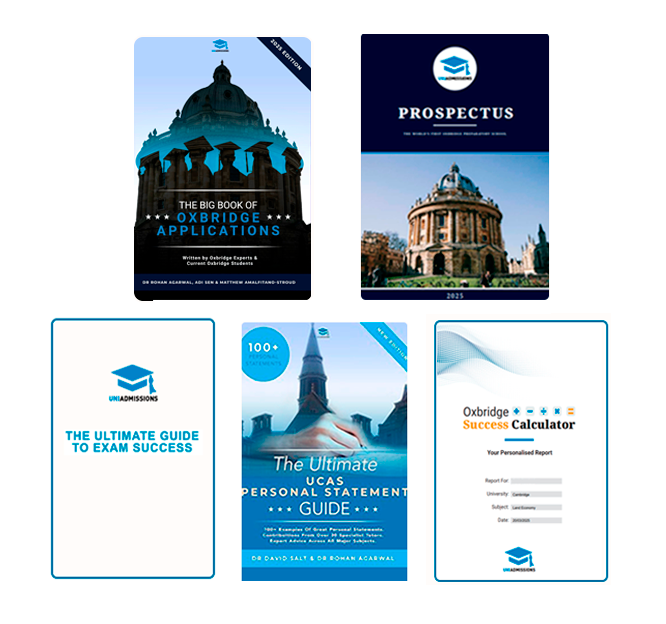
Access "The Big Book Of Oxbridge Applications" For FREE
Want to learn even more about the Oxbridge application process and life at Oxford and Cambridge? Get The Big Book Of Oxbridge Applications, available for free right here! Through over 350 pages, you will find:
- 28 example Oxbridge Personal Statements
- Over 40 admissions test practice questions
- Interviews with Oxbridge students and graduates
- Additional downloadable resources
Fill in your details below to claim your digital copy today!
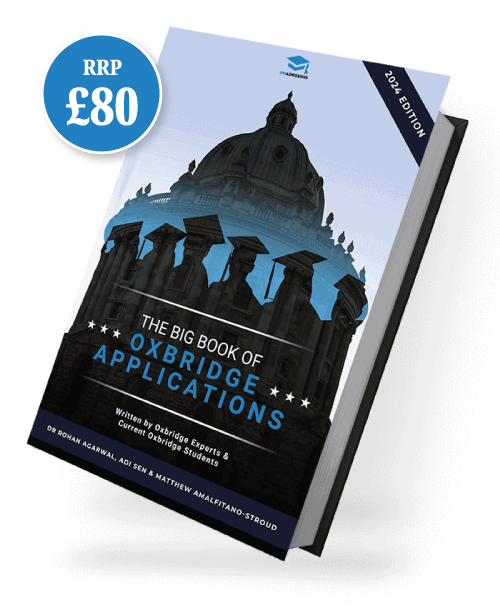
The Personal Statement
The most challenging part of the UCAS application is the Personal Statement, a three-part, 4,000-character piece of writing that you must submit to your university choices. This statement should demonstrate your motivations, abilities and experiences within your field to offer reasons as to why you deserve a place on your chosen course.
Are Personal Statements important To Oxbridge?
With Oxbridge being so selective, you would think that your Personal Statement will need to be perfect to ensure you get a place, but this isn’t particularly true. During the 2023 Oxford Open Day, we learnt from multiple sources that Personal Statements were generally de-emphasised by admissions tutors in favour of more Oxbridge-specific measures for applicants.
While this may not be true for Cambridge, or every single course at Oxford, it’s clear that the Personal Statement isn’t going to make or break your application. However, that doesn’t mean you shouldn’t put effort into it.
Your Personal Statement is seen by all of your university choices and, in many cases, is the only factor they consider in your application outside of your grades. No one is guaranteed a space at Oxbridge, so it’s important that your Personal Statement is still at a high enough quality to get you offers from at least one of your other options.
Wider Reading For oxbridge
A concept you may not be familiar with is wider reading, sometimes referred to as enrichment. This is essentially the act of engaging with your subject beyond the typical curriculum, which can be done in a variety of ways:
Reading: The most common form of wider reading is through actual reading. This can be anything from books relating to your subject to following relevant news stories. Oxford and Cambridge will typically expect you to be able to discuss something you’ve read recently in your interview, so this is essential for success.
Research Projects: If you want to take your wider reading to the next level, you could work on an independent research project to further explore an area that interests you. There are many ways you could do this, from creating a presentation to writing an essay assessing someone else’s work.
Academic Competitions: Taking part in an academic competition is a great way to show your dedication to your subject and engage with it in a unique way. Competitions can range from essay writing competitions to Olympiads and practical building challenges (such as Engineering).
These competitions aren’t just about winning; just taking part is enough to elevate your application and provide you with interesting talking points in your Personal Statement. Oxford and Cambridge each run a variety of competitions throughout the year, so be sure to check if there are any that are relevant to your subject.
Extra-Curricular Groups/Activities: Joining a club or taking part in stand-alone activities relating to your course will give you a variety of interesting talking points and new skills. They’re also a great way to meet people with similar interests.
Extra-Curricular Courses: If you want to condense your wider reading into a shorter period, taking part in a specialised course will help you develop a lot of new skills and understanding in a shorter period. These can be one-day courses, residential, remote courses and more.
If you’ve taken part in any of the activities, it’s important to include them in your Personal Statement, particularly in Question 3, to demonstrate your dedication. You may not be able to fit everything in, so focus on the activities that had the most profound impact on you and your outlook on the subject. You’ll have a chance to go into more detail during your interview.
Work Experience For Oxbridge
Another key component for any Personal Statement is your work experience, as this will be one of your major talking points in Question 3. In most cases, admissions tutors would expect to see some form of relevant work experience or shadowing, especially at Oxbridge.
That’s not to say that you have to have been working the exact job you would hope to be doing in 10 years; many applicants will take part in work placements that are tangentially related to their chosen field. For example, while it’s possible for a medicine applicant to gain work experience in a hospital, it is also valid for them to seek out a placement shadowing a GP or volunteering in a care home.
The most important thing about work experience isn’t the specific tasks you learn how to do but the general skills and knowledge of the industry that you gain from first-hand experience. Students will be taught all of the technical requirements during their studies, so admissions tutors are more concerned about how well applicants understand and appreciate the realities of their sector.
Oxbridge Personal Statement Tips
1.
Don’t Make It Oxbridge Specific
Your Personal Statement will be sent off to every university you apply to, so don’t reference any university in particular within your writing. You need to be able to amass as many offers as possible so narrowing your scope is a bad idea.
2.
Self-Reflection Is Key
When writing about your work experience or wider reading, you shouldn’t be simply listing off what you did and saw. Instead, you need to discuss the deeper meanings of those experiences; what you learnt about the profession, what skills you developed that would transfer into your studies and how your view of the subject may have changed.
3.
Edit Down
4,000 characters may seem like a lot, but it really isn’t once you’ve put everything down on paper. Your first draft will likely go over this limit, and that’s okay. The first draft of the statement is your chance to put all of your ideas and talking points down for each question without restrictions.
From there, you can make changes, implement feedback from other sources and look for elements that can be shortened or cut out so that you can fall below the character limit. Be careful to spread the character limit fairly evenly between the three questions, as they’re all very important.
4.
AI Usage
One of the biggest talking points surrounding Personal Statements recently is the use of AI. Currently, UCAS does not ban the use of AI to support Personal Statement writing but heavily discourages excessive usage. While certain use cases may benefit your writing – such as shortening sentences or checking for errors – AI should generally be avoided for writing significant portions of your statement.
5.
Get Inspired
Before you start writing your Personal Statement, check out some example statements to gain inspiration for what you could write and how you should write about it. We have a large library of over 25 Personal Statements from successful Oxbridge applicants available for you to view, complete with comprehensive feedback (keep in mind that these examples use the former style of Personal Statement seen pre-2025):
Every step of the Oxbridge application process counts, so get it right with UniAdmissions
At UniAdmissions, we are specialists in getting applicants into Oxbridge, Medicine and more. With our expertly crafted curriculum, extensive preparation materials and innovative Portal, we have developed programmes that cater to applicants of over 30 subjects across Oxford, Cambridge and more.
Discover our Full-Blue Programmes by clicking the button below to learn how you can enrol and triple your chances of success.
The Admissions Test
We’re now moving away from the standard university application steps and into areas that are most specialised to Oxbridge. Admissions tests, or entrance exams, are assessments that applicants for certain university courses must take in order to have their application considered.
Oxford and Cambridge are the most prominent universities to use admissions tests, but tests are also required for many law applicants and all UK medicine applicants. However, Oxbridge use the most admissions tests for a variety of courses. These tests will require the applicant to answer multiple types of questions or complete certain tasks:
- Multiple-Choice Questions
- Written Questions
- Essays
- Translation Tasks
The type of task required will depend on the admissions test you’re taking and the course you’re applying for, as the admissions test is always there to test applicants on relevant skills and knowledge. Sometimes, admissions tests can be fairly broad, testing general thinking skills, while others are very subject-specific.
Below are all of the major admissions tests you’ll find at Oxford and Cambridge:
Oxford Admissions Tests
- Mathematics Admissions Test (MAT): Required for Mathematics and Computer Science (and joint courses)
- Physics Admissions Test (PAT): Required for Physics, Engineering and Material Sciences
- Thinking Skills Assessment (TSA): Required for PPE, Economics & Management, PPL and more
- Biomedical Sciences Admissions Test (BMSAT): Required for Biomedical Sciences
- Ancient History and Classical Archaeology Admissions Test (AHCAAT): Required for Classical Archaeology and Ancient History
- History Admissions Test (HAT): Required for History (and course variants)
- Modern Languages Admissions Test (MLAT): Required for Modern Languages and European & Middle Eastern Languages (and joint courses)
- Classics Admissions Test (CAT): Required for Classics (and joint courses)
- Philosophy Test (PhilAT): Required for Philosophy & Theology
Cambridge Admissions Tests
- Engineering and Science Admissions Test (ESAT): Required for Natural Sciences, Engineering, Veterinary Medicine and Chemical Engineering & Biotechnology
- Test of Mathematics for University Admissions (TMUA): Required for Computer Science and Economics
- History Admissions Assessment (HAA): Required for History (and course variants)
- Modern and Medieval Languages Admissions Assessment (MMLAA): Required for Modern & Medieval Languages and Asian & Middle Eastern Studies (and joint courses)
- English Admissions Assessment (EAA): Required for English
- Classics Admissions Assessment (CAA): Required for Classics
- Linguistics Admissions Assessment (LAA): Required for Linguistics (and joint courses)
- Philosophy Admissions Assessment (PAA); Required for Philosophy (and joint courses)
Oxford & Cambridge Admissions Tests
This isn’t all of the admissions tests used at Oxford and Cambridge, as some colleges will implement smaller-scale tests for their admissions. It is crucial that you check the entry requirements for your course on the official course page to check what admissions test you will need to sit.
How Are Oxbridge Admissions Tests Used?
Most admissions tests will be marked using a scoring system, which will then give you a final score which can be used alongside the rest of your application (essay writing tasks may not be officially marked but will typically still be considered). Scores are often placed on a scale with the rest of the application cohort to determine average scores. Of course, your goal is to end up on the higher end of this scale.
Your score is primarily used during the shortlisting process or interview invitations, as interview slots are limited. However, your score may also be considered during the final decision-making process for offers.
How to prepare for Oxbridge Admissions Tests
Admissions tests don’t always test subject knowledge, so preparing for an admissions test doesn’t always involve revision like you would do with a typical exam. However, there are various proven techniques that you should do while preparing for your test:
Review The Test Format: Admissions tests can take a wide variety of forms and have unique rules from one another, so it’s important that you familiarise yourself with said rules and get a feel for how the test looks and functions. This would include studying question formats, time limits and topics covered (tests that feature required subject knowledge will outline everything that could be covered within the test specification, which will be viewable online).
Also, be aware of any computer systems that may be used for the test. For example, the UCAT runs on unique software that features a built-in calculator and a variety of keyboard shortcuts.
Try Out Practice Questions: Although subject revision may be necessary in some cases, the most effective way of preparing for an admissions test is through practice. Practice questions can come from a variety of sources, including past papers, official practice resources, books and online question banks (both free and paid options are usually available).
Working through practice questions often will help you improve not only your ability to answer questions correctly but also the speed and efficiency at which you do it.
Take Mock Exams: Once you’re comfortable with the questions you’ll be facing, you’ll need to put your skills to the test in a realistic exam simulation. You’ll need to work within exam conditions, including the time limit, to ensure that you are able to work effectively under the pressure and time constraints you’ll face in the real thing.
Oxbridge Admissions Tests Tips
1.
Be Wary of Joint Courses
If you’re applying for a joint course – for example, History & Economics at Oxford – you will need to sit two different admissions tests – in this case, they would be the HAT and the TSA. Always thoroughly check the entry requirements section of your course page and ensure the information is accurate to your admissions cycle.
2.
Check Testing Dates
Testing dates will vary between admissions tests, with some giving you the option to choose your test date over the span of several weeks (e.g. LNAT and UCAT), while others are limited to a set date (MAT and PAT). In some cases, usually at Cambridge, you may not even be required to sit the test until right before your interview. Always check the date you will need to sit the test and book your testing date well in advance if required to do so.
3.
Worked Solutions
While practice questions are extremely helpful for learning exam techniques, they can only be so useful if you aren’t able to learn from your mistakes. Worked solutions allow you to see a fully explained solution to any practice question you answer, but they aren’t always available. Free worked solutions for any past paper are usually available online, but question banks with worked solutions typically charge a fee to use.
4.
Monitor Your Progress
Whenever you sit a mock exam or do a marked practice session, always keep the scores you achieve and use them to monitor your progress. If you’re preparing correctly, you should be able to see your scores going up over time. Some online question banks will track your progress for you.
The Interviews
The interviews are usually the final stage of your application before offers are sent. Interviews are a chance for admissions tutors to meet the most promising candidates and assess how well they would fit into their chosen course. That means that you’re going to need to prove that you’re capable, knowledgeable and dedicated to studying hard to achieve success in your degree.
Who Gets Interviewed At Oxbridge?
Not every applicant will get interviews at Oxford or Cambridge. The admissions tutors initially assess all applications based on their education history, Personal Statement, admissions test results and any additional factors that may have been required. From this assessment, they create a shortlist of applicants who will be invited to interview.
Roughly 70% of applicants at Cambridge will be interviewed in a given year, while Oxford tends to interview roughly 40%. That means that you’re more likely to get an interview at Cambridge, which, in part, leads to a slightly higher chance of success.
How Many Interviews Will I Need to Attend At oxford Or Cambridge?
When being interviewed at Oxbridge, it’s uncommon to attend less than 2 interviews, though you may expect to attend more depending on your subject. Also bear in mind that you may be asked to interview at a different college in some cases, such as if you have been entered into the Winter Pool at Cambridge.
The Oxbridge Interview Format
Both Oxford and Cambridge interview applicants in a very formal manner, opting for traditional panel interviews. Applicants are not interviewed by the university as a whole, but rather, admissions tutors from the college they have applied to. You can typically expect to meet 2 – 3 interviews from the college per interview, ranging from admissions tutors to faculty members from the relevant departments.
Currently, Oxford has confirmed that all interviews will be taking place remotely for the foreseeable future. However, Cambridge has begun to reintroduce in-person interviews, so be sure to check the course page or contact the college if you’re unsure. The time, date and location of your interview will be confirmed in your invitation email.
Most of the interview will be a simple exchange of questions and answers between you and the interviews, with chances for you to discuss topics in more detail also included. Some subjects will have unique structures to their interviews, such as PPE interviews being split into three sections for each of the three major subjects. You may also need to take part in activities like role-plays or debates, although these are less common.
What Questions Are Asked At Oxbridge Interviews?
Questions will vary greatly depending on the subject you’re applying to. In some cases, you may be asked to read and analyse a piece of text, solve a mathematical problem or translate a passage. However, some of the more common and general questions include:
- Why choose Oxford/Cambridge?
- Why have you chosen this college?
- What about this subject interests you?
- Tell me about something you’ve read recently.
You may also encounter questions relating to your Personal Statement, so be sure to review it beforehand so you aren’t caught out on anything.
Oxbridge Interview Tips
1.
Practice But Don’t Script
While it’s a good idea to practice your interview technique in advance via mock interviews, it’s important not to fully script your answers to common questions as these will come off as unnatural and robotic during the actual interview. Highlight and memorise key talking points that you can then build your answers around.
2.
Research The University
Before attending an interview, it’s important that you have a good understanding of not only the university but also the college and department that you’ll be engaging with. Research the history, facilities and any notable facts that may appeal to you, as the admissions tutors will expect you to provide specific reasons as to why you’ve applied to their college.
3.
Prepare Arrangements
The last thing you want is to encounter an issue on the day of the interview that will make you late or unable to attend. Therefore, you must prepare all the necessary arrangements well in advance. If it’s a virtual interview, ensure you have a quiet, private space available with good internet connection and a good-quality camera and microphone. If it’s an in-person interview, ensure you have a travel plan in place as well as any accommodation arrangements that may be necessary.
4.
What To Wear
It may seem like you have to put on your smartest outfit when attending an Oxbridge interview, but it’s actually not that serious. While you should be dressed fairly smart, it’s more important that you’re comfortable in what you’re wearing so that you can perform at your best.
Additional Requirements
Below are some additional considerations that you may need to face during your application:
College Selection
When applying to Oxford or Cambridge, you’re not just applying to the university itself; you’re applying to a specific college. Known as the collegiate system, Oxford and Cambridge are run in a fairly unique manner, with most aspects of a student’s life being handled by the college they attend rather than the university.
Your college choice will impact your accommodation, studies and social life due to the various college events that you will be able to attend. Oxford has 39 colleges currently operating while Cambridge has 31, with many differences present between them. There are single-sex colleges, mature student colleges and more, with certain colleges being better for certain subjects (e.g. STEM-focused colleges).
Your choice of college is a fairly major decision, so it’s important that you research the different options available to see which ones would be most appropriate for you. Our Guides to Oxford Colleges and Cambridge Colleges are the perfect places to start this research.
Submitted Work
Sometimes, subjects will require applicants to submit one or multiple pieces of work based on certain criteria as a part of the admissions process. These are usually essays or written pieces that relate to the subject you’re applying for, although art portfolios or musical compositions are required in specific instances.
In some cases, submitted work may be used as a replacement for an admissions test, although some courses will require both. It is usually requested that the work submitted had previously been marked by a teacher in an academic format, so you usually won’t need to produce anything new for this.
My Cambridge Application Form
Exclusive for Cambridge applicants, this online form is an additional requirement that must be submitted at a similar time to the standard UCAS application. This form covers a lot of the same ground as your UCAS application, including personal details, education history and your course choice, so it’s important to check that the information between the two forms is the same.
The more interesting part of the chance to submit a second Personal Statement, exclusively for Cambridge. Since your UCAS Personal Statement is sent to all of your university choices, this is your chance to write about why you specifically want to study at Cambridge while also demonstrating your dedication to knowledge of the subject.
This statement is roughly 1/4th the length of the UCAS statement, with a maximum character count of 1,000, but it’s still a great opportunity to further express your desire to study at Cambridge.
That covers all of the major steps that you’ll need to take in order to get into Oxbridge. There are challenges and risks at every point in the application process, but if you’re able to successfully navigate your way through to the end, you should find yourself with a good chance of earning that offer.
While there isn’t necessarily such a thing as the ‘perfect Oxbridge candidate’, there are enough ways to prepare for each stage of the application process that you should be able to elevate yourself to the level that Oxford and Cambridge look for within their applicants.
One thing that is always important to remember is that everything you write and say needs to be genuinely you. If you explain how much you’re interested in a topic within your field, there’s no point in lying as you should have a genuine interest in your field if you care enough to apply for Oxbridge. Being insincere about why you want to apply rarely ends in an offer, and when it does, it’s even less likely that you’ll have the motivation or skill to finish the course.
Remember, Oxbridge is a tough place to study, but it’s also incredibly rewarding if you put the work in and enjoy what you do. Those who are the most likely to succeed in their application are the ones who understand and are ready for the challenge ahead. If you can demonstrate this about yourself, the admissions tutors will more than likely notice.
With all that being said, it can sometimes be hard to navigate all the different rules, recommendations and formalities littered throughout the Oxbridge admissions process. You’ll likely need support from an Oxbridge expert in one way or another, and UniAdmissions offers comprehensive guidance for the entire application process. Our Full-Blue Programmes provide you with all the tools you need to understand and prepare for each stage of the process with one-to-one tuition, intensive courses and materials all from Oxbridge experts.
If you would like to learn more about our programmes, visit our Full-Blue Programmes page to find the subject you’re looking for. If you’d like to start the enrollment process, you can book a free consultation session with our admissions consultants to get started! However you decide to approach your application, we wish you the best of luck!
Boost your chances of getting into Oxbridge with expert support from UniAdmissions
When you enrol on a UniAdmissions Full-Blue Programme, you will have access to everything you need to effectively prepare for each stage of the admissions process. This includes unlimited one-to-one tuition, hundreds of preparation materials, live courses, unlimited Personal Statement/essay marking and much more.
Discover our Oxbridge Full-Blue Programmes by clicking the button below to learn how you can enrol and triple your chances of success.


